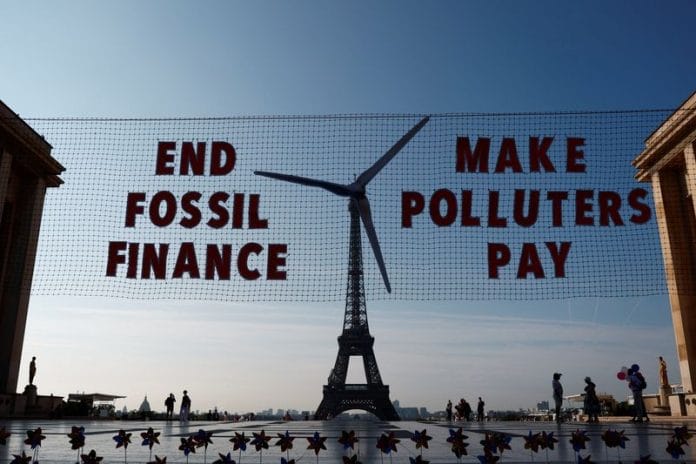By Leigh Thomas and John Irish
PARIS (Reuters) -The World Bank chief will announce a raft of measures on Thursday to aid countries hit by natural disasters, including a pause in payments to the lender, as world leaders gather in Paris to give impetus to a new global finance agenda.
Some 40 leaders, including about a dozen from Africa, China’s prime minister and Brazil’s president, will be joined in the French capital by international organisations, civil society and private sector actors at the “Summit for a New Global Financial Pact.
It aims to boost crisis financing for low-income countries, reform post-war financial systems and free up funds to tackle climate change by getting top-level consensus on how to progress a number of initiatives currently struggling in bodies like the G20, COP, IMF-World Bank and United Nations.
Leaders are set to back a push for multilateral development banks like the World Bank to put more capital at risk to boost lending, according to a draft summit statement seen by Reuters.
In a speech to be delivered on Thursday, new World Bank president Ajay Banga will outline a “toolkit”, including offering a pause in debt repayments, giving countries flexibility to redirect funds for emergency response, providing new types of insurance to help development projects and helping governments build advance-emergency systems.
Citing the war in Ukraine, climate crisis, a fledgling pandemic recovery, widening disparity and declining progress, Banga said it was time the World Bank adopted a new vision.
“This urgency motivates us to write a new playbook that will drive impactful development, leading to better quality of life and jobs for people,” Banga was due to say.
The summit aims to create multifaceted roadmaps that can be used over the next 18-24 months, ranging from debt relief to climate finance. Many of the topics on the agenda take up suggestions from a group of developing countries, led by Barbados Prime Minister Mia Mottley, dubbed the ‘Bridgetown Initiative’.
“The international financial system is no longer adapted to face financing challenges the world faces today so this is an opportunity to get everyone around the table,” said a senior French diplomat.
The coronavirus pandemic pushed many poor countries into debt distress as they were expected to continue servicing their obligations in spite of the massive shock to their finances.
Africa’s debt woes are coupled with the dual challenge faced by some of the world’s poorest countries of tackling the impacts of climate change while adapting to the green transition.
Wealthy nations have yet to come good on climate finance that they promised as part of a past pledge to mobilize $100 billion a year, a key stumbling block at global climate talks.
Though binding decisions are not expected, officials involved in the summit’s planning said some strong commitments should be made about financing poor countries.
Nearly eighty years after the Bretton Woods Agreement created the World Bank and International Monetary Fund (IMF), leaders aim to squeeze more financing from multilateral lenders for the countries that need it most.
In particular, there should be an announcement that a $100 billion target has been met that will be made available through the International Monetary Fund for vulnerable countries, officials said.
Some leaders are expected to lend their weight to long-stalled proposals for a levy on shipping industry emissions ahead of a meeting next month of the International Maritime Organization, officials said.
(Reporting by John Irish; editing by Philippa Fletcher)
Disclaimer: This report is auto generated from the Reuters news service. ThePrint holds no responsibilty for its content.






